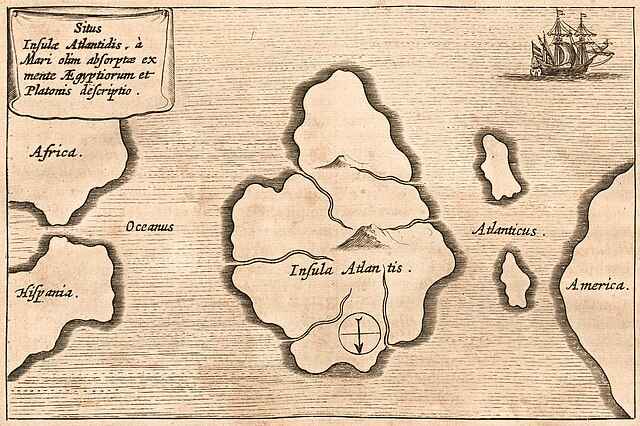The concept of Atlantis has captivated the human imagination for centuries, thanks to the ancient Greek philosopher Plato, who first introduced the idea in his dialogues “Timaeus” and “Critias.” According to Plato, Atlantis was a powerful and advanced civilization that existed around 9,000 years before his own time, ultimately succumbing to a catastrophic event and disappearing beneath the waves.
While Atlantis remains a legendary and mythical city with no concrete evidence of its existence, many have speculated about its possible locations and characteristics. Here’s an insider’s guide to the world of Atlantis:
1. Possible Locations:
- Mediterranean: Some theories place Atlantis in the Mediterranean, suggesting that the catastrophe described by Plato could be related to the volcanic eruption on the island of Santorini.

- Caribbean: Other theories propose locations in the Caribbean, connecting Atlantis to the ancient civilization of the Maya or even suggesting a link to the submerged structures near Cuba.
- Antarctica: Some fringe theories speculate that Atlantis might be located in Antarctica, buried under layers of ice.
2. Advanced Technology:
- Atlantis is often described as a technologically advanced society with capabilities surpassing those of other ancient civilizations. Some accounts mention advanced knowledge of energy, architecture, and even mysterious crystals with unique properties.
3. Political Structure:
- Plato described Atlantis as a powerful and wealthy maritime empire with a sophisticated political structure. The city was said to be ruled by ten kings descended from the god Poseidon.
4. Catastrophic Event:
- The downfall of Atlantis is attributed to a catastrophic event, often described as earthquakes, floods, or volcanic eruptions. This event led to the submersion of the entire civilization beneath the ocean.
5. Clues in Ancient Texts:
- Beyond Plato’s accounts, some researchers point to similarities between Atlantis and other ancient myths and texts from different cultures. These parallels are sometimes used as evidence to support the existence of a lost advanced civilization.
6. Modern Speculation:
- The fascination with Atlantis persists in popular culture, with many books, movies, and documentaries exploring the mystery. Some people claim to have discovered the lost city, but these claims are often met with skepticism.
7. Scientific Skepticism:
- Despite ongoing interest and speculation, mainstream archaeology and science remain skeptical about the existence of Atlantis. The lack of concrete evidence and the symbolic nature of Plato’s account contribute to the skepticism.
8. Pop Culture Impact:
- Atlantis continues to be a popular theme in literature, art, and entertainment. It serves as a symbol of a utopian society that met a tragic end, leaving behind a sense of mystery and intrigue.
In conclusion, the world of Atlantis is a realm of mystery and speculation, fueled by ancient texts, modern theories, and the human imagination. While the lost city itself may remain elusive, the myth of Atlantis endures as a captivating and enduring part of our cultural heritage.












